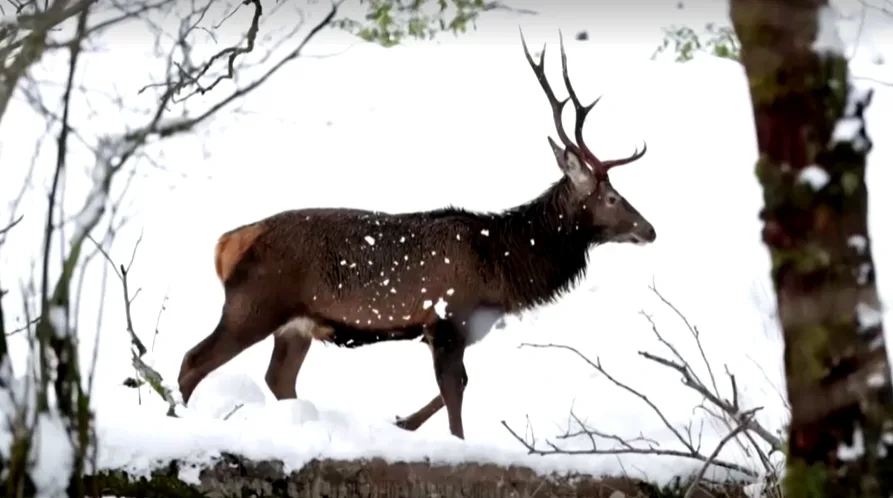
Scottish red deer are giving birth earlier to adapt to climate change
In some of the first evidence that wild animals are evolving to cope with climate change, scientists say red deer on a remote Scottish island are giving birth earlier in the year.
Genetic changes to red deer on the Isle of Rum, off the west coast of Scotland, have played a key role in a rapid shift in birth dates in recent years, new research shows.
"(The) calving date has got 12 days earlier since the 1980s and that's quite a big shift for a large mammal to make over that time-frame." Professor Josephine Pemberton, of the University of Edinburgh's School of Biological Sciences, told Reuters.
Previous studies have shown that the deer have been giving birth earlier since the 1980s, at a rate of about three days per decade, partly due to the effects of warmer temperatures on the deer's behaviour and physiology.
Now, scientists have revealed that genetic changes caused by natural selection, the theory of evolution developed by Charles Darwin, are also involved.
"It's actually very hard to demonstrate change going on in nature in those sorts of things although that's exactly what Darwin reckoned was going on and this is an example of us managing to do it at least to some degree," Pemberton said.
VIDEO: WHAT IS A CLIMATE EMERGENCY?
"We evolutionary biologists anticipate this is going to happen everywhere actually. We think there is a lot of change going on in the world and populations are going to have to adapt if they're going to survive."
The study provides a rare example of evolution happening quickly enough to be detected over only a few decades.
"For the first time we've got a signal of a genetic change over time with respect to the breeding date of a wild animal," Pemberton said.
They use DNA database of every red deer on the island to produce a detailed pedigree for every animal which allows them to prove that the animals are changing over time.
A team including scientists from the University of Edinburgh made the discovery using field records and genetic data collected on Rum over a 45-year period since 1972.
The research was published in the journal PLOS Biology.